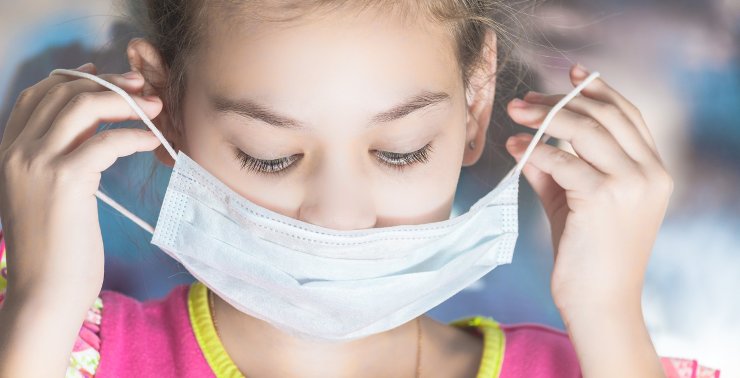In late 2019, a new virus began generating headlines all over the world because of the unprecedented spread of its transmission, which is coronavirus disease (COVID-19).
It originated in a food market in Wuhan, China, in December 2019 to countries and reached as far-flung as the United States and the Philippines, the virus has affected tens of thousands, with a rising death toll now over 4,000 and declared as a pandemic by the WHO.
In this article:
Are Children more Susceptible to the Virus Covid-19 when Compared to General Population?
Does the Clinical Presentation of Covid-19 Differ in Children Compared with Adults?
Are Children at Increased Risk?
Are there any Specific Treatments for Children?
How to Protect Children from Coronavirus?
A Guide for Coronavirus in Children
Are Children more Susceptible to Covid-19 than the General Population?
As per the available records and evidence, children do not appear to be at a higher risk for COVID-19 as compared to the general population. While some children and infants have been sick with COVID-19, adults appear to be largely targeted in most of the known cases till now.
However, it is advised to contact the doctor if the child or someone in the family has a fever, cough or other flu-like symptoms.
Does the Clinical Presentation of Covid-19 Differ in Children and Adults?
The symptoms of COVID-19 are seen similar in children and adults. However, children with confirmed COVID-19 are found to have generally shown mild symptoms. The symptoms in children include cold-like symptoms such as fever, runny nose, and cough. Vomiting and diarrhea have also been reported.
Children may been have mild symptoms but still can pass the virus onto others with high risk which includes older adults and people having serious underlying medical conditions.
Are Children at Increased Risk?
It’s not known yet whether children may be at higher risk or not. However, special care should be provided to children with underlying medical conditions and special healthcare needs.
Make sure the child have all vaccinations done. Protect child against illnesses like measles and the flu. This helps keep the child out of the doctor’s office or hospital where they could be around other germs including coronavirus.
Are there any Specific Treatments for Children?
Doctors and researchers are working on medicines and a vaccine for coronavirus. Most children get better with rest, fluids and fever-reducing medicine.
There’s currently no vaccine to prevent coronavirus disease (COVID-19). The best way to prevent this illness is to avoid being exposed to this virus by taking protective measures.
How to Protect Children from Coronavirus?
Help to stop the spread of COVID-19 by doing the same things everyone should do to stay healthy and teach the child to do the same.
- Clean hands properly often using soap and water or alcohol-based hand sanitizer.
- Avoid people who are sick (coughing and sneezing).
- Clean and disinfect high-touch surfaces daily in household common areas (like tables, hard-backed chairs, doorknobs, light switches, remotes, handles, desks, toilets, and sinks).
- Launder items including washable plush toys as needed. Follow the manufacturer’s instructions. If possible, launder items using the warmest appropriate water setting and dry items completely.
Limit time with other children by –
- Practice social distancing is the key to slow the spread of COVID-19 to limit contact as much as possible. As the schools are closed, the child should not go outside and play. If they go out, it is essential to remain 6 feet away.
- Make sure that the child practices everyday preventive behaviors such as washing the hands often with soap and water for at least 20 seconds. This is especially important if they’ve been to a public place.
Limit time with older adults and people with serious underlying medical conditions –
- If family members are at particularly high risk for severe illness from COVID-19, consider extra precautions to separate the child from those people.
- If unable to stay home and the child goes out, carefully consider who might be best positioned to provide child care. If someone at higher risk for COVID-19 will be providing (older adult like a grandparent or someone with a chronic medical condition), limit the child’s contact with other people.
- For now, postpone visits or trips to see older family members and grandparents. Connect virtually by calls, video calls or sending via mail.
Children should wear a cloth face covering –
Children 2 years and older should wear a cloth face covering the nose and mouth when in the community setting. This is an additional public health measure people should take to reduce the spread of COVID-19 in addition to (not instead of) social distancing, frequent hand cleaning and other everyday preventive actions. A cloth face covering is not intended to protect the wearer but may prevent the spread of the virus from the wearer to others.
Keep the child healthy by –
- Watch the child for any signs of illness like fever, cough or shortness of breath, call the doctor and keep the child at home and away from others as much as possible.
- Watch for signs of stress in the child like excessive worry or sadness, unhealthy eating or sleeping habits and difficulty with attention and concentration. Take time to talk to the child and make happy.
- Teach and reinforce everyday preventive actions is important for health.
- Help the child stay active and play indoors games.
- Keep the child socially connected by calls and video calls to family and friends.
In conclusion, everyone should do the five to help stop coronavirus –
1. Hands –wash them often
2. Elbow – cough into it
3. Face – don’t touch it
4. Space – keep a safe distance
5. Home – stay if you can
Don’t panic and stay calm. Follow the preventive measures and educate others to do the same. Talk to the doctor for advice. Stay home and stay safe.
References
- https://www.cdc.gov/coronavirus/2019-ncov/daily-life-coping/children.html
- https://www.ncbi.nlm.nih.gov/pubmed/22094637
